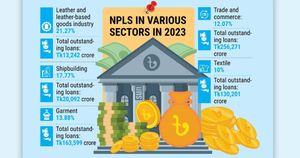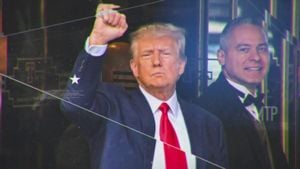With the dust still settling from the recent U.S. elections, the private equity and investment markets find themselves at a pivotal juncture. Investors, dealmakers, and analysts are beginning to gauge the consequences of the electoral outcomes and how they could shape the future of financial landscapes. The tone is decidedly optimistic, with many players within the private equity (PE) sector anticipating favorable conditions for deal-making, especially if the political winds lean toward pro-business policies.
The forecasted shifts primarily center around expectations for more advantageous tax regulations and relaxed restrictions, stoking eagerness among private equity investors. According to insights shared by Mary Kathleen Flynn, dealmakers expressed optimism about the potential for favorable tax policies. Under proposed changes, the anticipated reduction of taxation rates could significantly boost the profitability of future investments. This ripple effect might not only catalyze existing portfolios but could also invigorate the entire market for M&A (mergers and acquisitions).
Yet, it’s not all smooth sailing. One of the underlying concerns is the looming specter of tariffs. These could hike operational costs for portfolio companies with supply chains extending to China. This reality has the potential to dampen some of the enthusiasm, introducing unpredictability to the PE sector, which typically thrives on stable conditions.
Mark Quinn, director of regulatory affairs at Cetera, highlighted how industry shifts under the new administration might favor reducing regulatory burdens, easing existing financial practices. This perspective is pivotal as many firms are keeping close tabs on the Department of Labor’s Retirement Security Rule, which remains under judicial review and could see significant adjustments.
Turning to market reactions, the immediate aftermath of the election results showcased a noticeable tremor across various financial platforms. Stocks surged forward, creating ripples of excitement among investors. The U.S. dollar registered gains, reflecting renewed confidence. Susannah Streeter from Hargreaves Lansdown noted this excitement but also cautioned investors about potential inflationary policies linked with tariffs. Trade dynamics, particularly with China, came under scrutiny as the market reacted to shifting geopolitical landscapes.
The Trump administration, back at the helm, brings with it speculations about possible alterations to investment landscapes. Industry watchers are especially attuned to the shifts concerning environmental, social, and governance (ESG) policies, particularly how these might reshape investment guidelines for privately held entities. One of the more significant predictions involves the reversal of the existing administration’s leeway on ESG factors, likely favoring stricter “pecuniary” bases as justifications for financial decisions.
Matthew Eickman, chief legal officer for the Fiduciary Law Center, echoed sentiments of significant regulatory overhauls reminiscent of former administrations’ policies, particularly concerning fiduciary responsibilities. There is anticipation among industry players for the restoration of certain limitations, especially on cryptocurrencies and ESG-centric investments, which may hinder broader investment strategies.
While there might be fear of increased costs due to heightened tariffs, the prospect of stabilizing tax policies offers hope for many. The fiscal changes could support continued contributions toward retirement savings plans without imposing alarming restrictions. Quinn elucidated how such changes could serve as fuel for the already competitive investment climate, promising to empower financial advisors to navigate these shifts effectively.
Beyond tax conversations, the deal pipeline looks promising as financial investors eye opportunities with eagerness borne out of potential stability. Investors trust the political climate may inspire businesses to pursue cooperative deals rather than battling high stakes. The focus has shifted from merely reacting to current frameworks to strategizing for advantage.
Private equity firms are likely to adapt to the anticipated shifts, prioritizing alignment with broader economic signals. Preparing for potential fluctuations will define how the sector reacts and positions itself for both immediate success and long-term sustainability. The collective sentiment is to surge forward, maximizing advantages of lenient tax regulations and deregulatory policies.
Despite varying opinions on specific policy impacts, many see potential bargains on the horizon. Perhaps most promisingly, private equity professionals are eyeing growth opportunities through newly defined frameworks fostering resilience. Investors should stay alert, as regulatory and market dynamics navigate this complex, ever-shifting terrain.
To summarize, as the private equity sector attempts to place itself favorably within the predicted post-election scenario, the clarity of regulations, taxation, and market dynamics will significantly influence future operations. While some risks are apparent, the outlook remains infused with optimism, encouraging dealmakers to strategize for resilience and growth amid potential regulatory shifts.



